1. Refills are (Usually) Free
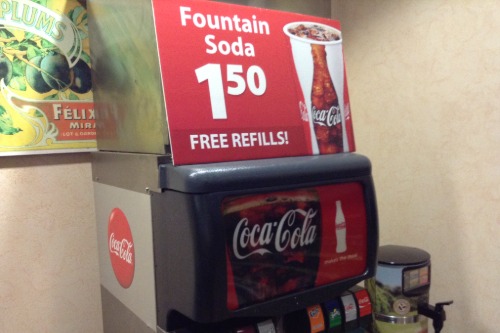
In many countries, ordering a soda means you get one bottle or can, and that’s it. But in most American restaurants, soft drink refills are unlimited—and completely free, The New Yorker explains. Many foreigners don’t realize this and end up leaving their drink half-finished, not knowing they could have had more. This is especially surprising in places where drinks are expensive and portioned carefully.
Even coffee at some diners comes with free refills, making it a great deal for caffeine lovers. However, not all places do this, so if you’re unsure, it’s best to ask. Fancy restaurants and bars usually charge per drink, but casual spots keep the refills coming. Just be warned—waiters might refill your drink without asking, so keep an eye on your intake!
2. Tipping is Mandatory (Even Though It’s “Optional”)
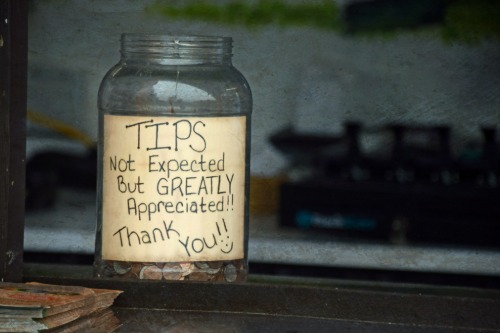
In most countries, tipping is a nice bonus for great service, but in America, it’s basically required, The Guardian reports. Waitstaff, bartenders, and even hairdressers rely on tips because their base wages are often shockingly low. If you don’t tip at least 15–20%, you might get a dirty look—or even confronted by an unhappy server. Many foreigners get caught off guard by this and end up unintentionally stiffing their waiter.
Even more confusing, some places automatically add gratuity for large parties, which can result in double tipping. And if you think rounding up the bill is enough, think again—Americans calculate tips based on the pre-tax total. Failing to tip properly isn’t just seen as rude, but practically a social crime. If you don’t want to do math at the table, there are even apps to calculate tips for you.
3. Personal Space is a Big Deal

Americans are very particular about personal space, and standing too close can make them uncomfortable, the University of Louisville explains. The general rule is to keep at least an arm’s length away from people you’re not close to. In countries with more relaxed space norms, like parts of Europe or Asia, this can feel a bit distant or even unfriendly. But in the U.S., getting too close might make someone take a step back—or look at you like you’re invading their bubble.
Even in lines, Americans leave noticeable gaps, unlike places where people pack in tightly. Hugging or touching someone casually is usually reserved for close friends and family. If you’re talking to someone and they inch away, they’re not being rude—they just need more space. Understanding this can help avoid awkward interactions, especially in crowded places.
4. Ice in Everything (Even When It’s Freezing)

In many countries, drinks come at room temperature or lightly chilled, but in the U.S., everything is loaded with ice, CNBC reports. Whether it’s soda, water, or even wine (for some), Americans seem to believe no drink is complete without a handful of ice cubes. Foreigners often find this excessive, especially when their drink gets watered down too fast. But for Americans, a drink without ice just feels incomplete.
Even in winter, restaurants will serve drinks with ice unless you specifically ask otherwise. And don’t be surprised if waiters keep refilling your cup with ice-cold water without asking. Some visitors think this obsession comes from America’s love of soft drinks, which taste better super cold. Whatever the reason, if you prefer room-temperature drinks, you’ll have to make a special request.
5. Sales Tax is a Sneaky Surprise

Foreigners are often shocked when they go to pay for something and the total is higher than expected. That’s because in most of the U.S., sales tax isn’t included in the sticker price—it gets added at checkout, Fonoa explains. This can be frustrating for visitors used to prices that already include taxes, like in Europe. The amount varies by state, so something that costs $9.99 might actually be over $11 depending on where you are.
It gets even trickier because some states don’t tax essentials like groceries, while others do. Shopping in one state might feel cheap, but cross the border, and you’ll get hit with an unexpected tax hike. Even Americans get caught off guard when shopping in a new state. The best way to avoid surprises? Expect the final price to always be a bit higher than what’s on the tag.
6. Small Talk is Expected Everywhere
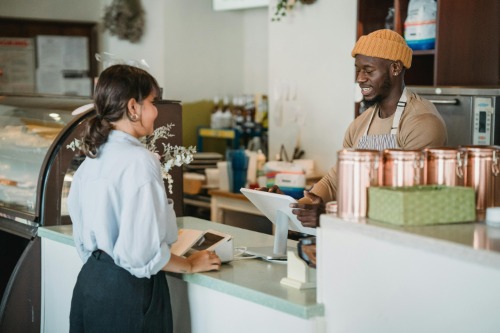
Americans love small talk, and it happens in the most unexpected places—grocery stores, elevators, and even with strangers at the park. A simple “How’s it going?” isn’t really a question but more of a social cue to say something friendly back. Many foreigners find this bizarre because in their countries, talking to strangers isn’t common unless there’s a reason. If you answer too literally or ignore it, you might come off as unfriendly.
Even more confusing, Americans don’t actually expect deep answers. If someone asks, “How are you?” the correct response is usually “Good, thanks! How about you?” Going into a full explanation about your day’s ups and downs is too much information. It’s all about keeping things light and maintaining a friendly vibe.
7. Being Loud is Normal

Americans have a reputation for being loud, and that’s because in the U.S., talking at full volume is just normal. Whether it’s a group laughing at a restaurant or someone chatting on speakerphone, loudness isn’t seen as rude. In many other cultures, people speak more quietly, especially in public places. But in America, if you whisper too much, people might think you’re being secretive or weird.
Even in business meetings, confidence is shown through speaking up rather than staying reserved. Foreigners from quieter cultures often feel overwhelmed in group conversations where everyone talks over each other. But if you stay too quiet, you might not get a chance to jump in at all. So, if you want to fit in, don’t be afraid to raise your voice a little!
8. Drive-Thrus for Everything

Most people expect fast food drive-thrus, but in America, you can drive through for almost anything. Pharmacies, coffee shops, liquor stores, and even banks have drive-thru options. This convenience-driven culture is shocking to those from places where you have to park and go inside for most errands. The idea of picking up prescription medicine without leaving your car is especially strange to many foreigners.
Even weirder, some places have drive-thru wedding chapels and even funeral homes. Americans love efficiency, and if something can be done from a car, they’ll find a way. This also explains why there are so many massive parking lots everywhere. If you’re visiting, don’t be surprised if someone suggests grabbing coffee without ever stepping out of the vehicle.
9. Jaywalking is a Big Deal (In Some Places)

In many countries, crossing the street whenever there are no cars is completely normal. But in the U.S., jaywalking—crossing outside of a designated crosswalk or against a traffic signal—can actually get you a ticket. Some cities, like Los Angeles and New York, take it especially seriously, and police do issue fines. Foreigners often find it ridiculous that they can get in trouble for something so harmless.
However, the rule isn’t enforced consistently across the country. In smaller towns or less strict cities, people jaywalk all the time without issue. But in places with heavy traffic or strict pedestrian laws, stepping off the curb at the wrong time could mean a hefty fine. If you’re unsure, just follow what the locals are doing—if they wait for the light, you probably should too.
10. Customer Service is Almost Too Friendly
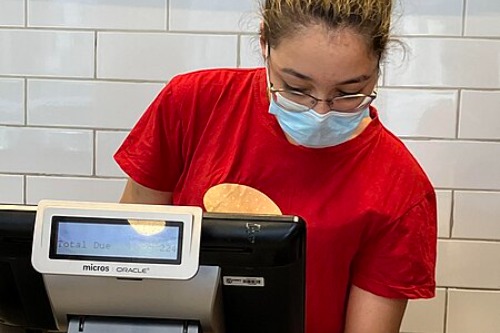
In the U.S., customer service workers are expected to be cheerful, helpful, and sometimes even overly friendly. Walk into any store, and you’ll probably be greeted with a big smile and a “Hi, how are you?”—even if they don’t actually care how you’re doing. Foreigners from places with more reserved service cultures sometimes find this forced friendliness suspicious. They might wonder, “Do they really want to help me, or are they just trying to sell me something?”
The answer is usually both. American businesses put a huge emphasis on customer satisfaction, and employees are trained to be enthusiastic no matter what. This can be great if you need help but overwhelming if you just want to browse in peace. If the friendliness feels excessive, just remember—it’s all part of the culture, and they don’t actually expect a deep conversation.
11. Food Portions Are Gigantic
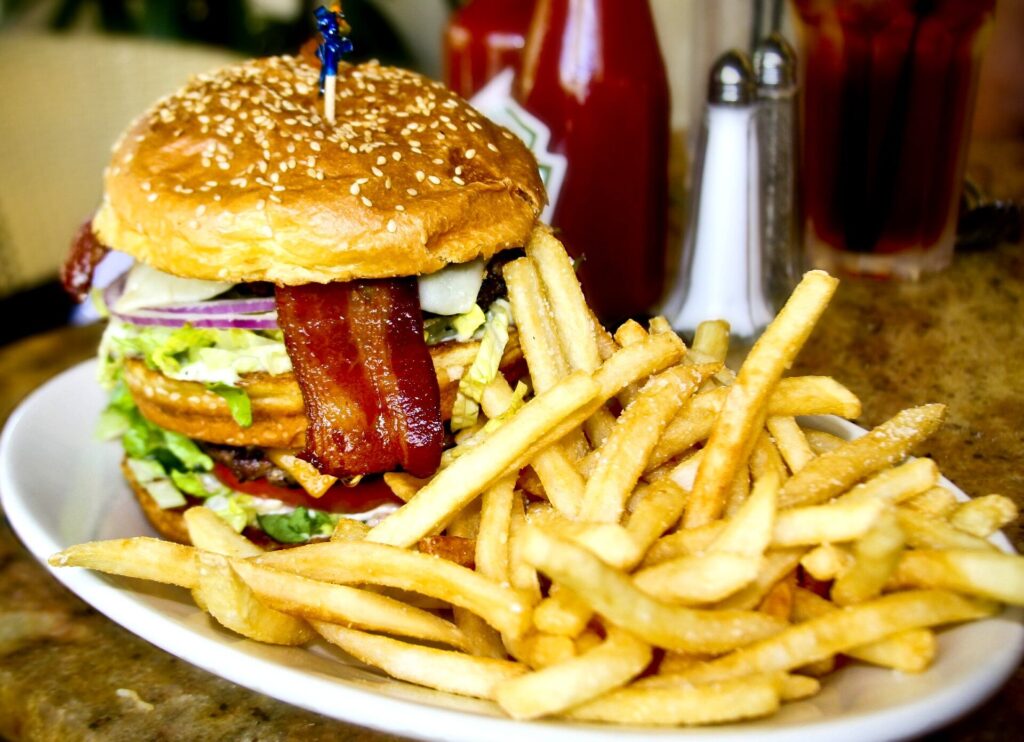
One of the first things foreigners notice in the U.S. is how huge the food portions are. A “regular” meal in America is often the size of two or three meals in other countries. Whether it’s a burger, a plate of pasta, or a simple soda, everything is supersized. Many visitors are shocked when they order a meal and end up with enough food for an entire family.
The good news is that taking leftovers home is completely normal, and most restaurants even expect it. Asking for a to-go box is not considered rude—it’s actually seen as practical. Some travelers take advantage of this by ordering one meal and saving the rest for later. But if you’re not used to eating so much, it’s best to share or order a smaller size when possible.
12. Credit Cards Are Used for Everything
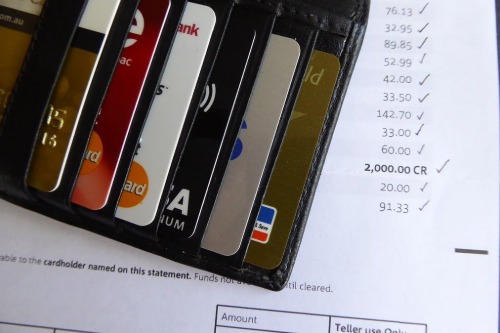
In many countries, cash is still king, but in America, people use credit and debit cards for almost everything. Even for tiny purchases like a $2 coffee, most Americans will just swipe their card instead of using cash. Foreigners who are used to carrying money might find this odd, especially when even vending machines and parking meters accept cards. Some small businesses still prefer cash, but they’re becoming rare.
Even more surprising, many Americans rely heavily on credit cards, racking up debt to earn reward points. Some people don’t even carry cash at all because they never need it. However, tipping and small transactions can still be tricky, so it’s always good to have a few dollars on hand. If you’re visiting, don’t be surprised if a cashier looks confused when you try to pay with a large bill.
13. Bathrooms Have Big Gaps in the Stalls

One of the most unsettling things for foreigners in America is the bathroom stall design. Unlike in many other countries where stalls offer complete privacy, American restroom stalls often have large gaps around the doors and at the bottom. This can make people feel exposed and uncomfortable, especially if they’re used to fully enclosed stalls. Many foreigners wonder why the gaps even exist in the first place.
The reason is mostly practicality—larger gaps help with ventilation, easy cleaning, and spotting potential safety issues. Some also argue that it discourages people from lingering too long inside. But whatever the reason, many visitors find it hard to relax when they can see (and be seen) through the cracks. If you’re not used to it, you may just have to embrace the awkwardness and do your business quickly.
14. Drinking in Public is a No-Go

In many countries, it’s completely normal to walk around with a beer or enjoy a glass of wine at the park. But in most of the U.S., drinking alcohol in public is illegal unless you’re in a designated area. Many tourists get caught off guard when they realize they can’t just sip a beer on the beach or take their cocktail to-go. Some cities, like New Orleans and Las Vegas, have relaxed open container laws, but most places don’t.
To get around this, some Americans use “discreet” methods like putting alcohol in a soda cup. That’s why you’ll sometimes see people drinking from brown paper bags—it’s an attempt to hide their drink. Police usually won’t bother you unless you’re being obvious, but it’s still technically against the law in most places. If you want to drink outside, your best bet is to find a bar patio or a legal drinking zone.
15. Friday Nights Are Sacred for High School Football
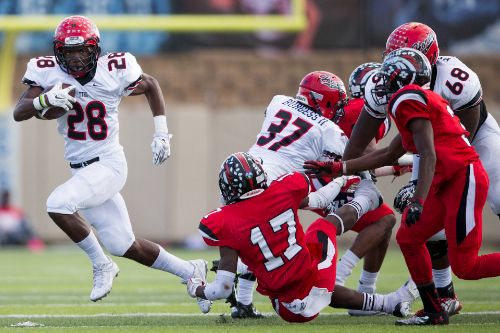
In American small towns, Friday nights revolved around high school football games. Whether or not you were a fan, there was no missing the community spirit that filled the air as the stands overflowed with everyone from young kids to retirees. People proudly donned their school colors, waving banners and cheering loudly for their team. The evening was a ritual, a shared experience that brought people together week after week.
For those directly involved in the game, it was more than just playing a sport—it was about being part of something much bigger. From the cheerleaders to the volunteers, everyone has a role in making the event happen. The town’s pride and camaraderie shone through in every chant, every cheer, and every touchdown. Rivalries were fierce, but they only deepened friendships. No matter where life took you, those Friday nights and the memories they created would always be a defining part of small-town life, and the legacy of those games lived on long after graduation.


